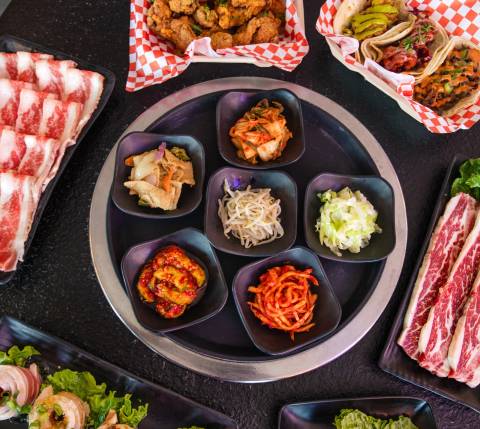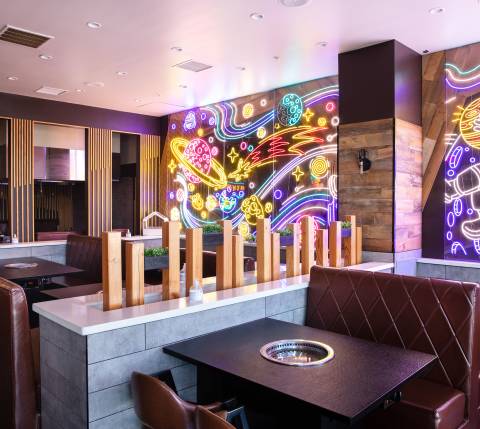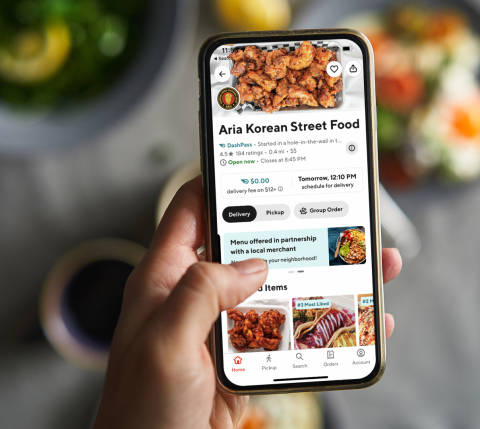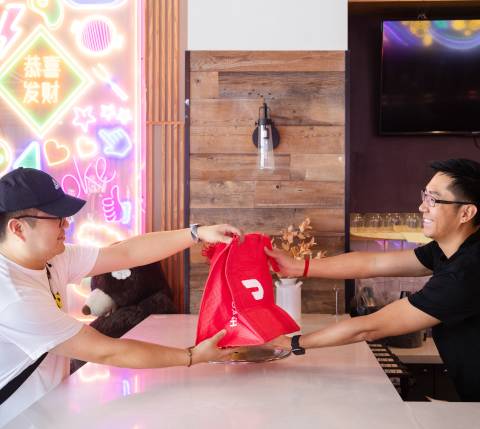About Bak Kung
Francis Cui grew up in Los Angeles and loved dining in the city's Koreatown restaurants — and missed them when he moved to the San Francisco Bay Area for college.
Francis and his wife saw an opportunity to bring traditional Korean BBQ dishes like bulgogi, glass noodles, and galbi-jjim to their community. In 2017, they opened Bak Kung to serve high-quality, affordable Korean BBQ to residents of Pleasanton, California and its surrounding areas.
No stranger to entrepreneurship, Francis continues to work in M&A for a publicly traded company and owns a college counseling business in addition to running the restaurant.

Getting Bak Kung off the ground
Francis quickly found that achieving profitability in the restaurant industry was no easy feat. Bak Kung was located in an up-and-coming neighborhood, and he had a hard time driving awareness among diners. "In 2017 in Pleasanton, this area had nothing here," Francis said. "The first year we struggled because people didn't know this plaza existed." By 2019, Bak Kung was finally in the black — and then the COVID-19 pandemic hit.
Initially, Francis and his wife were 10% stakeholders in Bak Kung, but they decided to take on full control and be even more hands-on with the business during the pandemic. Suddenly, Francis was juggling everything — managing day-to-day operations as well as suppliers, inventory, legal, accounting, and HR.
To attract diners, Francis first focused on creating an appealing restaurant atmosphere — he updated the bar area, added a TV for customers to watch sports, and installed trendy neon lights. "I tried everything I could," said Francis. "I was just using Google to find ideas."

Discovering new opportunities for revenue
In 2022, DoorDash approached Francis about Brand Licensing, a service to help Bak Kung generate incremental sales. Brand Licensing allows restaurants the opportunity to grow revenue by selling a well-known restaurant brand's menu out of their existing kitchen. DoorDash helps restaurants determine which established brand to license, then shares approved recipes, trains kitchen staff on preparation, provides supplier lists to get the right ingredients, and even recommends takeout containers for each dish.
The DoorDash team paired Bak Kung with Aria Korean Street Food since its dishes use similar ingredients and techniques. DoorDash's in-house chef trained Francis and his team on the preparation of Aria's dishes. "It was great to have the DoorDash chef help us," said Francis. "I was able to understand things like when the chicken sauce wasn't coated correctly, it would cause some bitterness in the flavor."
Francis was eager to start licensing a brand — and from the initial conversation with DoorDash, he had Aria up and running in his own kitchen in just a few weeks. "I didn't need to add any staff, or any equipment," he said. "I just went through the recipes with my staff, and it was super easy for us."

The perfect pairing
Since he began selling Aria items on DoorDash, Francis has been able to generate approximately $12,000 in monthly revenue. "We were losing about $30,000-$40,000 per month, then in February we were losing about $5,000 per month, and last month [in March] after Aria came in, we broke even," he said.

Brand Licensing makes perfect sense to me. We have the capacity and the ingredients — I just make it and sell it on the DoorDash platform. It's like DoorDash is giving me free money.
When asked how he would explain the benefits of Brand Licensing to other restaurant operators, Francis said, "I don't even have to think about it. I just order the ingredients and make sure my staff is well trained." He added, "I don't see why anyone with the kitchen capacity would say no to it."
The additional revenue from licensing brands allows Francis to spend less time on day-to-day operations and more time getting everything in order on the business front — including HR, legal, and accounting. By making sure the restaurant has a strong foundation, he's setting up Bak Kung for long-term success.

Francis also appreciates the sales and customer insights he gets from the DoorDash Merchant Portal, including cancellation rate, popular menu items, and customer reviews. "If I didn't get five stars, I want to see what's going on," he said.
Planning for a successful future
Looking ahead, Francis will continue to find ways to generate revenue and streamline operations, applying learnings from his experience with DoorDash.
For example, he optimized his delivery menu, improved prep station efficiency, launched Ads & Promotions to drive sales for Bak Kung, and added Online Ordering to add online ordering to his own website. He’s also starting to host other brands with Brand Licensing, increasing sales with more stores on the DoorDash app and website.
With these improvements and the additional revenue, he'll be able to share his love for Korean cuisine with even more customers.





